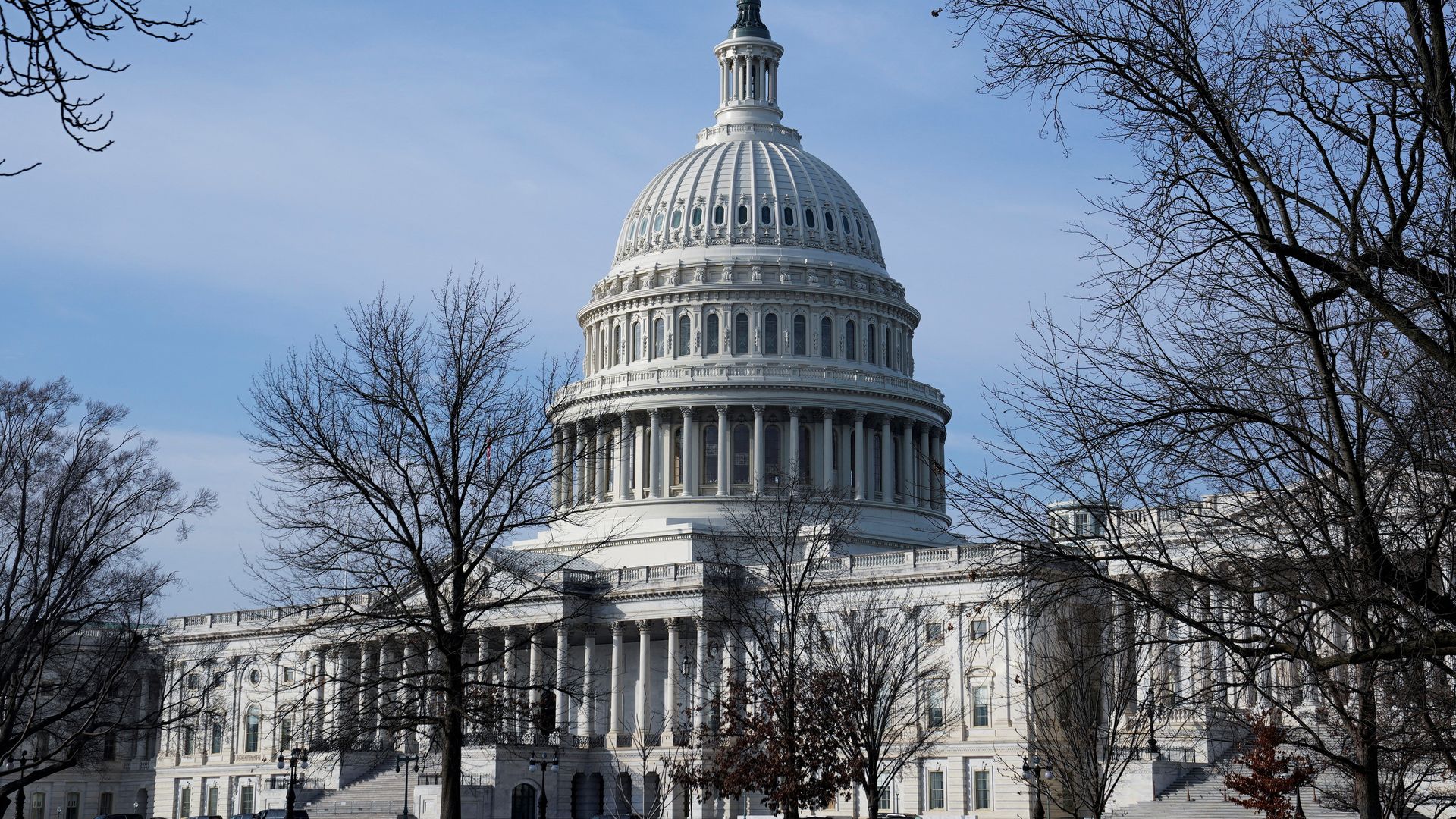
Capitol Hill staffers ask Congress for 32-hour work week
By Ray Bogan (Political Correspondent), Snorre Wik (Photographer/Editor)
Members of the Congressional Progressive Staff Association are asking their bosses for a 32-hour work week. They contend it would increase retention on Capitol Hill and set an example for work load at a national level.
Media Landscape
This story is a Media Miss by the left as only 12% of the coverage is from left leaning media. Learn moreBias Distribution
Left
Untracked Bias
In a letter to all members of Congress, the staffers said they work rigorous, long hours which routinely leads to burnout.

Download the SAN app today to stay up-to-date with Unbiased. Straight Facts™.
Point phone camera here
“The intensive nature of these roles often causes staffers to seek new positions earlier than they would in a more predictable and sustainable work environment,” the letter stated. “Hiring new staff members can disrupt the flow of work, alter the office culture, and deprive the team and the member of important institutional knowledge an experienced staffer takes with them.”
The request was shot down immediately by Rep. Ritchie Torres, D-N.Y.
“Why not be bold and ask for a 0-hour workweek? I wonder how blue-collar Americans would feel about white-collar workers demanding a 32-hour workweek,” Torres wrote on X.
Why not be bold and ask for a 0-hour workweek?
— Ritchie Torres (@RitchieTorres) January 16, 2025
I wonder how blue-collar Americans would feel about white-collar workers demanding a 32-hour workweek. pic.twitter.com/2Je1Zf6FHC
There are many members who believe Congress doesn’t work enough already. The legislative branch is typically only in session three to four days a week.
“Let’s get back to work. These two hour work weeks we’re having up here are ridiculous. I’m tired of them saying we don’t have enough time,” Rep. Tim Burchett, R-Tenn., said. “Let’s get to work. America works, Congress doesn’t.”
If the staffers don’t have the support of moderate Democrats or Republicans, this will not happen. But they could gain the support of progressives like Rep. Pramila Jayapal, D-Wash., who introduced a bill last year to shorten the standard work week under federal law to 32 hours.
“It’s vital that health, well-being, and basic human dignity are valued over employers’ bottom lines,” Jayapal stated at the time. “Establishing a 32-hour work week would go a long way toward finally righting that balance.”
Supporters of the shortened week contend it will not impact productivity. They said higher morale and energy levels will help employees maintain or even increase the amount of work they get done.
[Ray Bogan]
Members of the Congressional Progressive Staff Association are asking their bosses for a 32-hour work week. They contend it would increase retention on Capitol Hill and set an example for work load at a national level.
In a letter to all members of Congress the staffers said they work rigorously long hours which routinely leads to burnout.
“The intensive nature of these roles often causes staffers to seek new positions earlier than they would in a more predictable and sustainable work environment.”
“Hiring new staff members can disrupt the flow of work, alter the office culture, and deprive the team and the member of important institutional knowledge an experienced staffer takes with them.”
The request was shot down immediately by New York Democratic Congressman Ritchie Torres, who wrote on X – “Why not be bold and ask for a 0-hour workweek? I wonder how blue-collar Americans would feel about white-collar workers demanding a 32-hour workweek.”
Burchett: “Let’s get back to work. These two hour work weeks we’re having up here are ridiculous. I’m tired of them saying we don’t have enough time. Let’s get to work. America works, Congress doesn’t.”
If the staffers don’t have the support of moderate Democrats or Republicans, this will not happen. But they could gain the support of progressives like Congresswoman Pramila Jayapal who introduced a bill last year to shorten the standard work week under federal law to 32 hours.
At the time, Jayapal stated “It’s vital that health, well-being, and basic human dignity are valued over employers’ bottom lines. Establishing a 32-hour work week would go a long way toward finally righting that balance.”
Supporters of the shortened week contend it will not impact productivity. They say higher morale and energy levels will help employees maintain or even increase the amount of work they get done.
Media Landscape
This story is a Media Miss by the left as only 12% of the coverage is from left leaning media. Learn moreBias Distribution
Left
Untracked Bias
Straight to your inbox.
By entering your email, you agree to the Terms & Conditions and acknowledge the Privacy Policy.
MOST POPULAR
-
 Getty Images
Getty Images
Trump preparing to sign executive order to begin closing Department of Education
Read8 hrs ago -
 Getty Images
Getty Images
Republicans must cut Medicaid to fund Trump’s agenda, budget office says
Watch 2:109 hrs ago -
 Getty Images
Getty Images
Trump to revoke legal status for 240,000 Ukrainians as deportations rise: Report
Read10 hrs ago -
 U.S. Department of Energy
U.S. Department of Energy
Alaska’s $44B natural gas pipeline project attracts foreign interest
Watch 1:3911 hrs ago




